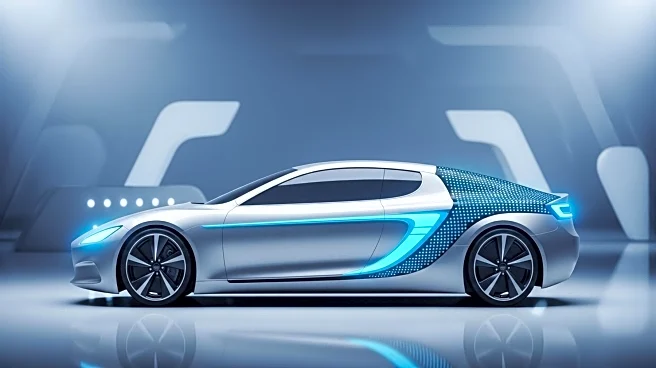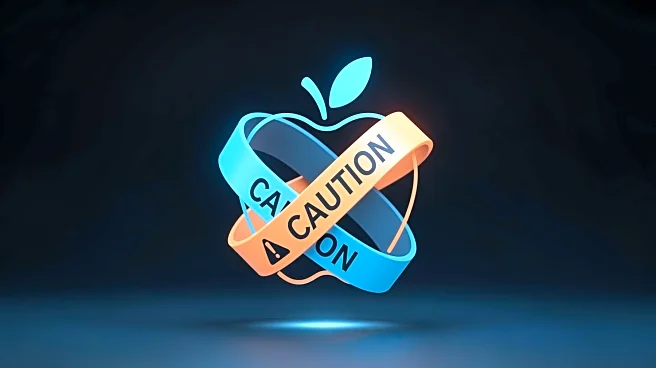What's Happening?
BMW has announced plans to expand the series production of its X5 model to include five powertrain options by 2028. These options will consist of gasoline, diesel, plug-in hybrid, battery electric, and hydrogen fuel cell variants. The introduction of the iX5 Hydrogen is part of BMW's strategy to promote the development of hydrogen fuel ecosystems and refueling infrastructure. This move is seen as a significant step in diversifying BMW's offerings and supporting sustainable energy solutions.
Why It's Important?
The inclusion of hydrogen fuel cell technology in BMW's lineup represents a significant shift towards sustainable energy solutions in the automotive industry. Hydrogen fuel cells offer a clean alternative to traditional fossil fuels, producing only water vapor as a byproduct. This development could accelerate the adoption of hydrogen as a viable energy source, potentially reducing carbon emissions and dependence on oil. It also positions BMW as a leader in innovative automotive technology, potentially influencing other manufacturers to explore similar sustainable options.
What's Next?
BMW's commitment to hydrogen fuel cell technology will likely lead to increased investment in hydrogen infrastructure, including refueling stations. This could encourage other automakers to follow suit, fostering a broader industry shift towards hydrogen-powered vehicles. Additionally, BMW may engage in partnerships with energy companies to support the development of hydrogen ecosystems, further solidifying its role in the transition to sustainable energy.
Beyond the Headlines
The move towards hydrogen fuel cells may also have implications for energy policy and environmental regulations. As hydrogen technology becomes more mainstream, governments may implement policies to support its adoption, including subsidies or tax incentives for hydrogen-powered vehicles. This could lead to a reevaluation of energy strategies and contribute to global efforts to combat climate change.









